The ‘due process’ clash of the law
03 May 2024 | BY Buddhika Samaraweera
- Private/unofficial bar lawyers & the Public Security Min. exchange salvos over the ‘Yukthiya’s’ ‘wayward’ ‘mission’
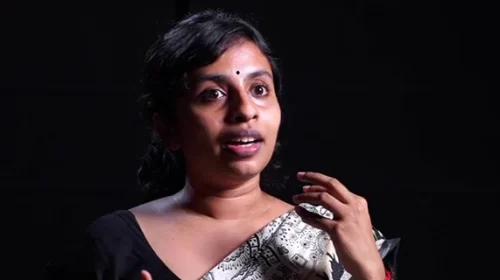 In a landscape fraught with tension, a clash has emerged between the Public Security Minister Tiran Alles and the Bar Association of Sri Lanka (BASL) over the controversial ‘Yukthiya’ (Justice) anti-drug and anti-organised crime operation.
In a landscape fraught with tension, a clash has emerged between the Public Security Minister Tiran Alles and the Bar Association of Sri Lanka (BASL) over the controversial ‘Yukthiya’ (Justice) anti-drug and anti-organised crime operation.
The BASL contends that the said operation has veered off course, with due legal procedures often disregarded, while Minister Alles refutes these claims, accusing the BASL of shielding criminals under the guise of defending justice. This conflict has stirred public opinion, with legal professionals insisting that rather than condemning lawyers for representing suspects, Alles should focus on bolstering Police investigations to ensure that justice is served without infringing on civil liberties.
Following directives from Alles and the Inspector General of Police (IGP) Deshabandu Tennakoon, the ‘Yukthiya’ operation was initiated to eradicate drug trafficking and organised crime activities across Sri Lanka. The operation, supported by the Special Task Force (STF) and the Army, has spanned multiple Provinces, with a focus on the Western and Southern Provinces. The result has been the arrest of thousands of suspects for drug related offences and other organised criminal activities during extensive raids. This large-scale crackdown represents one of the most talked-about efforts in recent years to combat organised crime and the drug menace in the country.
The BASL has consistently voiced its critique of the ‘Yukthiya’ operation, stressing the importance of conducting such crackdowns within the boundaries of the due legal process. In contrast, Alles has been defending the operation, asserting that it complies with all the legal requirements.
The conflict had somewhat faded into the background for a few weeks, but a recent remark by Alles ignited the flames once more. His statement that “eliminating criminals is not a sin” and advice to the law enforcement officers “not to be afraid to use their weapons to do the right thing” stirred a strong response from the BASL. Reports have then emerged suggesting that the Public Security Ministry plans to publicly disclose the names of lawyers who represent criminals and drug traffickers in courts. The proposed move has raised significant concerns within the legal community, with many seeing it as an attempt to intimidate or undermine their role. This Ministry has since denied plans for such an exposé.
Speaking to The Daily Morning, attorney Thineth Korasagalla described the nuanced framework of justice, pointing out that there are three distinct types of decisions: those from the society, those from the Judiciary, and those from nature. He highlighted that social judgement, which stands at the centre of much public discourse, is not always accurate. “Society’s decision is not always correct. There are hundreds of events which have been proven to be wrong through judicial proceedings.” To avoid miscarriages of justice, he emphasised that proper investigation is crucial. “Weak investigations could lead to even hardened criminals and drug dealers walking free. The Minister’s (Alles) focus should be to ensure thorough investigations that bring the most guilty to trial.” He also emphasised that a lawyer representing a suspect does not impede justice, adding that it is the quality of the investigation that ultimately determines the outcome. “The establishment of charges against a suspect through proper and evidence based investigations will ensure that the accused are punished, regardless of which lawyer represents them.”
When contacted by The Daily Morning, attorney Swasthika Arulingam who is also an activist vocal on women’s rights, human rights, and politics, said that a Minister making remarks suggesting that lawyers are protecting drug traffickers and criminals, could have grave consequences on judicial proceedings and the professional freedom of attorneys. “What he (Alles) is implying is that the Police can use extreme measures on the ground. If the Police believe that someone is a criminal, they could even shoot them. If someone is suspected to be a drug trafficker or a criminal, they don’t have any rights, and should not even be represented by a lawyer in courts. This is what he implies.”
She said that such statements may foster a social psyche that justifies violence and denies the suspects their rights. “When such a psyche is there, even if an innocent is framed as a drug trafficker or criminal, justice is very hard to come by. When an attorney is defending them, the Minister (Alles) is making them (lawyers) criminals too. It is a worrying situation.” Arulingam underscored that this mindset could have a chilling effect not only within the courts but also in the society at large. “Simply because someone is arrested by the Police, it does not mean that they are criminals as it needs to be proven in court,” she said, emphasising that statements like these could make it harder for suspects to get a fair trial. She warned that statements encouraging the usage of weapons could embolden the Police to engage in torture, knowing that the higher-ups’ rhetoric offer them protection. “If lawyers are viewed as criminals themselves for defending the suspects, the entire legal process is undermined. It creates an environment where justice is difficult to achieve both in and out of courts.”
She added that the Government is attempting to put a certain class of people away from society, without taking action to provide them the opportunity to have a better life. “When it comes to drug trafficking, the people are getting addicted to drugs because economic structures have been dispossessing them over the past. They don’t have work and they are hungry. When someone comes and gives them drugs, they use it. The Government then tries to put them away from society, which is wrong.”
Another lawyer said that the scales of justice would turn unfavourable against those who are accused, leaving them vulnerable to the full weight of the State’s prosecutorial power, if the protection of legal representation is absent or discouraged. “This imbalance could result in suspects being denied a fair hearing, where their rights are not properly defended or their perspective is inadequately represented. As a consequence, there is a heightened risk of wrongful convictions, where innocent people might be punished for crimes that they didn’t commit.” When suspects are not properly represented, he said that it would open the door to coercive practices, such as forced confessions or mistreatment by the law enforcement agencies. “Such outcomes do more than harm the individuals involved as they erode public trust in the entire legal system, in turn creating a perception that justice is arbitrary or biassed.”
Commenting on the matter, attorney Samantha Premachandra said that Sri Lanka’s legal system is fundamentally adversarial, and that at its core lies the presumption of innocence. “Anyone accused of a crime is presumed innocent, and that presumption can only be overturned through a court judgement.” He emphasised that every citizen, regardless of the accusation against them, has the right to legal representation in court by a lawyer. “If anyone tries to undermine or discourage that right, it is not just the accused who suffer; it impacts the entire system of justice,” he warned. He said that an attack on this foundational principle could have far-reaching implications. “If that right is taken away or altered, it could affect everyone. Today, it is alleged drug traffickers and criminals, tomorrow, it could be us.”
The lawyers’ remarks come in the wake of the BASL recently calling for the removal of Alles following his controversial remarks at the Katukurunda STF training camp’s passing out parade. Alles reportedly told the media, “Eliminating criminals from the country is not a sin,” and said that they should not be afraid to use weapons to do the right thing. The BASL condemned the statement, arguing that it violates the Constitution and the criminal justice system’s principles, emphasising that justice should be administered by courts through the due process. Voicing concern over recent increases in extrajudicial killings, custodial deaths, and Police torture, they suggested that Alles’ comments could further encourage such illegal actions. They also urged President Ranil Wickremesinghe to remove Alles as the Public Security Minister, describing his remarks as “irresponsible, arbitrary, and misleading.”
Alles was not available for comment.
When contacted by The Daily Morning, the Secretary to the Public Security Ministry, Viyani Gunathilaka said that he cannot comment on the matter as it was the Minister (Alles) who had made comments concerning the BASL. He further said that the Ministry had no plan to publicise the names of lawyers who appear for suspects in drug and crime related cases in courts, as suggested by recent media reports.
As the debate continues, the BASL’s call for due process and legal integrity serves as a reminder that the path to justice must be rooted in legal frameworks that protect the rights of all individuals, regardless of the accusations against them. The Ministry’s assurance that it has no plans to publicise the names of lawyers representing suspects offers a degree of relief, but, the broader issue of maintaining a fair and just legal system remains at the forefront of the public discourse.
https://www.themorning.lk/articles/g3TxCOfM4ZgTYTcRQaI7
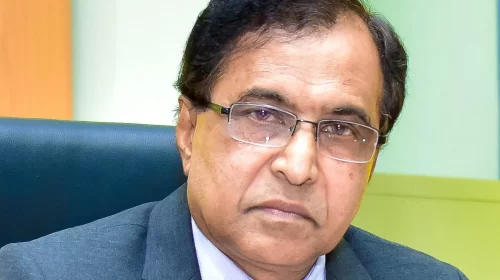 The Election Commission (EC) has informed President’s Secretary Saman Ekanayake and the other relevant authorities that it is better to hold the Local Government (LG) elections than establishing community advisory committees to oversee development projects under LG bodies.
The Election Commission (EC) has informed President’s Secretary Saman Ekanayake and the other relevant authorities that it is better to hold the Local Government (LG) elections than establishing community advisory committees to oversee development projects under LG bodies.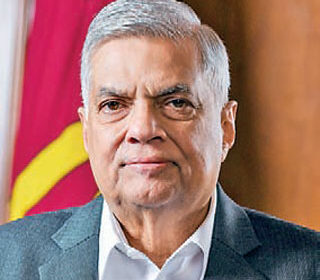 Opposition politicians and some of their government counterparts have taken up the cudgels for the people’s franchise following UNP General Secretary Palitha Range Bandara’s call for postponing the next presidential and parliamentary polls by two years. They say they are ready to do all it takes to prevent the postponement of elections.
Opposition politicians and some of their government counterparts have taken up the cudgels for the people’s franchise following UNP General Secretary Palitha Range Bandara’s call for postponing the next presidential and parliamentary polls by two years. They say they are ready to do all it takes to prevent the postponement of elections.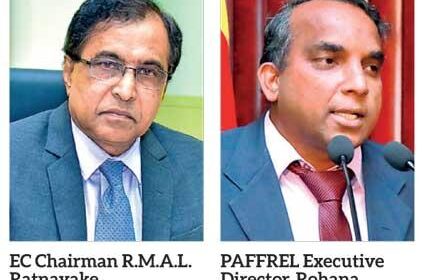 What is the significance of the Election Commission’s (EC) announcement on Thursday that the next presidential election would be held between September 17 and October 16? It is a well-known fact to those who know the relevant Article of the Constitution. It would have only been relevant if the EC had announced the exact date for the election.
What is the significance of the Election Commission’s (EC) announcement on Thursday that the next presidential election would be held between September 17 and October 16? It is a well-known fact to those who know the relevant Article of the Constitution. It would have only been relevant if the EC had announced the exact date for the election.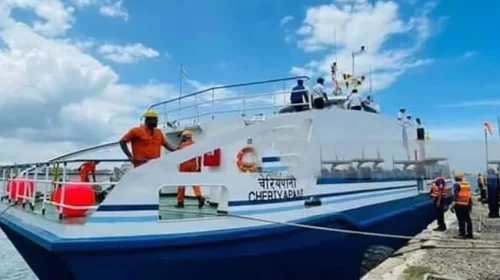 The passenger ferry service between Nagapattinam, India, and Kankesanthurai (KKS) in Sri Lanka, which resumed in October of last year (2023) after almost 40 years, only to be stopped days later, is set to recommence on 13 May.
The passenger ferry service between Nagapattinam, India, and Kankesanthurai (KKS) in Sri Lanka, which resumed in October of last year (2023) after almost 40 years, only to be stopped days later, is set to recommence on 13 May.  In a landscape fraught with tension, a clash has emerged between the Public Security Minister Tiran Alles and the Bar Association of Sri Lanka (BASL) over the controversial ‘Yukthiya’ (Justice) anti-drug and anti-organised crime operation.
In a landscape fraught with tension, a clash has emerged between the Public Security Minister Tiran Alles and the Bar Association of Sri Lanka (BASL) over the controversial ‘Yukthiya’ (Justice) anti-drug and anti-organised crime operation.